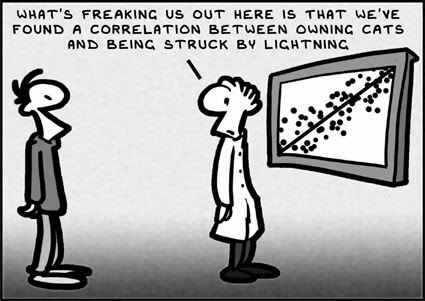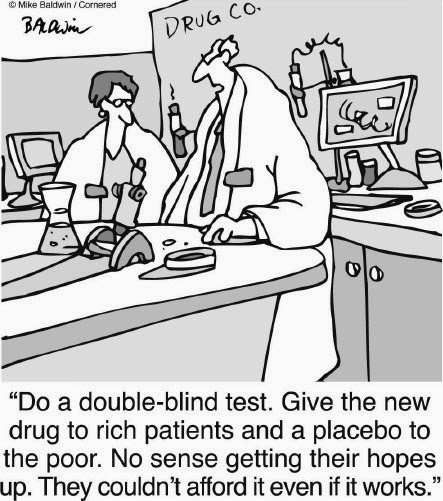OK, enough with stats. Let’s talk a little about causality. You have been patiently wearing your pocket protector for a couple of months, asking the right questions all the time, and diligently reading this blog to glean as much information as possible to become a research scientist.
So what now? Do you feel a little like a Rebel Without a Cause? You are asking questions that are interested in describing an association of interest. How about the association between watching horror movies and myocardial infarction (MI). One possibility is that watching horror movies is the cause-effect of an MI. You’re thinking: sure but there must be other explanations. You are right! Actually there can be another 4 rival explanations:

1- By chance alone you observed an association in your data. This is a spurious association.
3- Effect – cause: having an MI is the reason (cause) for watching horror movies – reverse to what you were thinking.
4- Confounding: watching horror movies is associated with a third factor that is the cause of MI. Say eating all those unhealthy snacks during the movie.
And of course don’t forget your initial “gut feeling” cause-effect: watching horror movies is a cause of MI.
Phew! That is a lot to think of. So what is important to remember? When designing your study to answer your question, you must always consider how to avoid spurious associations and concentrate on ruling out real associations that do not represent cause-effect. Especially those due to confounding.
Take a break and watch the Chicken Game from Rebel Without a Cause and then listen to Rebel Music to calm down after the game of chicken. So is playing chicken with cars hurtling towards a cliff associated with death? Possibly. But in watching the clip you see that maybe there is a confounding factor… See it?
Until next time in the blogosphere,
Pascal Tyrrell


